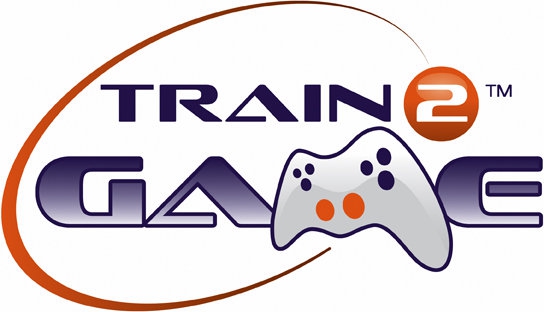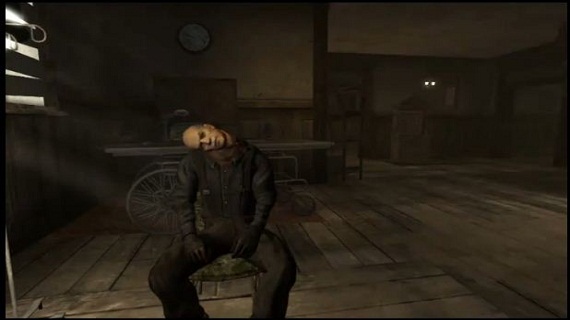 Train2Game recently caught up with Rock Hippo Productions to talk about their latest release, Brawl Busters, a free-to-play multiplayer combat title.
Train2Game recently caught up with Rock Hippo Productions to talk about their latest release, Brawl Busters, a free-to-play multiplayer combat title.
In an extensive interview, Marketing Manager Flavio Caracas discussed development of Brawl Busters, the importance of beta testing, industry trends including free-to-play and social gaming and much more. Read it right here on The Train2Game Blog. As usual, leave your comments here, or on the Train2Game forum.
Train2Game Blog: First of all, for those who aren’t familiar with it, what is Brawl Busters, how does the game work?
Flavio Caracas: Brawl Busters has an over-the-top style of action combat with single-player, multiplayer, and co-op modes. There are 5 unique fully customizable classes: Slugger, Firefighter, Rocker, Boxer, and Blitzer. The controls are super intuitive, letting beginners pull off combos with ease but require a lot of practice to compete at the top level. We feel that this mix can bring gamers of all kinds together in a way that hasn’t really been done before in this space. Check out the game for yourself at www.BrawlBusters.com.
What are the key elements of gameplay, and how did the game design team decide on them?
Players battle in a variety of environments, called districts, all part of “Mega City”. They all have a very fun, urban aesthetic and feel very much alive. The size of the playing environments varies, smaller maps encouraging frantic fast-paced action while the larger maps provide more strategic and team oriented game play. One of the most important aspects of the game is interaction with the environment. Players will need to destroy objects to get power-ups, avoid environmental hazards, and find boosts to get high ground advantage. As for progression, players will earn experience and Buster Points which will allow them to level up, unlock other classes, get new abilities, and customize their characters further. Gameplay elements are ultimately chosen based on fun factor, and finalized after lots of testing. We also get input from the player community, which is another great resource for us.
What are the different character classes, and how difficult was it to create a good balance between them?
There are five classes to choose from, each with their own unique moves, strengths, and weaknesses. Each class can also be customized by gender, body type, gear, and weapons. The Slugger is a baseball player with ranged and guided attacks, a powerful special, but lower movement speed. The Rocker is a balanced fighter with deadly combos, area of effect attacks, but no dominant strength. The Boxer has the fastest movement speed, projectile attacks, but the lowest HP.
The Firefighter is a containment specialist with long range attacks, defensive barriers, but vulnerable close range. The Blitzer is an American football player with the highest attack power, highest HP, but lower movement speed. These are the basic differences, but you’ll find even more as you play the game, and of course strategy is the key no matter the class chosen. It’s not easy to balance the classes but it’s a must for competitive games.

Brawl Busters has a distinct visual style, how did the art & animation team settle on that design?
All of our games have a very distinct visual style, which provides a fun, light-hearted atmosphere and opens up a lot more gameplay possibilities than a game with realistic graphics. There are things we can do in this game that would definitely look out of place if not for the cartoon style visuals. It also helps to keep the game objectives clear to the player as well as providing a wide range of interesting environments.
Each class is fully customisable, how important can that be in drawing people into play the game?
We’ve actually received a lot of positive feedback regarding that aspect of Brawl Busters. Players want to feel in control of their character, including their looks. It also provides a much greater variety of characters to encounter including options for gender and race. Our goal is to make a game that can be enjoyed by everyone and represents our global culture.
Brawl Busters went through extensive beta testing, how important is that and QA testing to the game development process?
QA is absolutely crucial to the development process. Something may seem like a good idea on paper, but we’ll never know for sure until we test it out. Beta testing allows us to involve our community in game balance decisions and with any bugs overlooked during QA. We’ve been very lucky so far with our community as they have been extremely helpful to us and new players during the open beta phase and our official release. We expect that to continue into 2012 and plan to involve them even more as the game progresses.
What are the reasons behind making Brawl Busters free-to-play? Is F2P the future of the industry?
As you know, the free-to-play market is having a big impact right now, and there’s a good reason for that. We’re able to reach a much larger audience for our games and the players can decide how much their experience is worth. It can seem counter intuitive, but the results speak for themselves. I think that F2P will become increasingly important in the industry, but there will always room for different models.
With so much competition out there in the free-to-play market, how are you encouraging people to play Brawl Busters?
We consider competitors on all different levels and platforms, however online PC games are where we focus our efforts as a publisher. I think that as time goes by, lines will be blurred and we will be in more direct competition with even more categories. And of course, there’s even some friendly competition between our own games as well. We focus on providing new game experiences that are accessible to as many players as possible, and we let the quality of our games speak for itself.

What are the plans for updates in future? How will you keep Brawl Busters fresh?
Of course, this is just the beginning. We know how important it is to provide fresh content and new experiences for our players. Right now we’re adding language support for German, French, Portuguese, and Spanish. You can also expect new modes, new areas, and new gear on a regular basis.
Brawl Busters features a lot of social media integration, how important is that to games now, and how important will it become?
Actually, we’re just starting to integrate social media with Brawl Busters. We still have a lot of ideas and great new ways to make our game even more social. Online games are essentially about the interaction and competition with other players. Social media is a key platform to engage and interact with the community, and in my opinion still in its infancy stages. As social media evolves, we must also learn new methods to engage our players.
Tell us a bit about the studio behind Brawl Busters.
Our partners at SkeinGlobe are based in South Korea and have done an amazing job with the game. We’re very happy to work with a group that has the same goals we do. Their aim was to create something that appeals to a worldwide audience, and is accessible to players of all skill levels. For us, it was a no-brainer to partner with them and deliver such a great, unique game to our audience.
How did you get into the games industry?
I came from a background in marketing and advertising, starting out at an ad agency focused on health and lifestyle. I’ve been a gamer my whole life, so when I got the opportunity to join the industry, it was an easy decision to make. It’s very exciting to not only be a part of the games industry, but also in a sector that brings innovation and new challenges.
And what advice would you give to those looking to get into the industry?
There are so many different ways one can be a part of the games industry. You just have to focus on your strengths and look for a company that’s compatible with your goals. And if that company doesn’t exist, then there might be an opportunity to create one. Always remember what your goal is, be passionate about your work, and the rest will follow.
Thanks for your time
Brawl Busters is free-to-play and can be downloaded from www.BrawlBusters.com

















